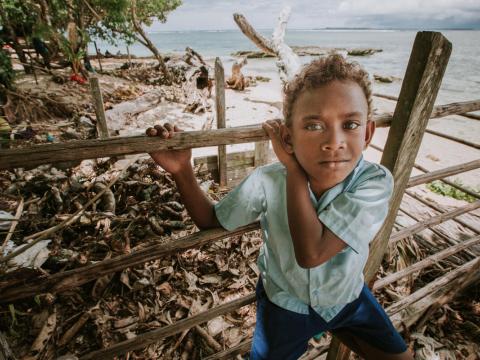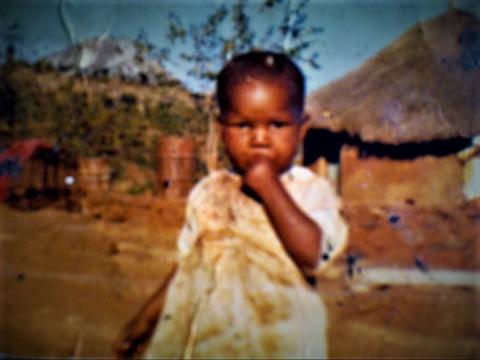COVID-19: A portal to a better, greener future?
By Charlotte L. Sterrett
For more than 15 years, I have seen the impact of climate change on the world’s poorest and most vulnerable families and their children. No matter where I travel, I have seen the devastation caused by climate-fuelled extreme weather and the more insidious impacts of climate change like sea level rise.
In Bangladesh, I saw homes and livelihoods destroyed by cyclones and resultant flooding and in West Timor I saw drought decimate families’ crops leaving children without enough food to eat.
In Bolivia, I saw how deforestation, fires and climate change threatened the unique culture of indigenous peoples, and on the islands of Papua New Guinea I saw how rising sea levels, soil erosion and salt-water inundation of crops destroyed people’s livelihoods, leading to migration of communities to the mainland in search of work.
In Ethiopia, I saw how recurrent droughts and food insecurity forced people off their land and into cities in search of work, and in my home country Australia, I saw how climate-fuelled bushfires destroyed homes and livelihoods, and killed billions of animals.
Climate change and the crisis it has caused knows no boundaries.
This year, COVID-19 is yet another reminder of climate change. A reminder that healthy and resilient natural environments, human health, well-being and economic prosperity are all connected. A reminder that when we fail to look after the natural environment human health and well-being suffer.
As custodians and stewards of Earth, I believe it is our responsibility to care for it now and into the future – not just for the sake of the planet but for ourselves, our children and future generations. This requires us to better balance profit, people and the planet, creating a safe and just space for humanity to prosper.
If we are to tackle the climate crisis and pandemics like COVID-19, we must choose a different future - a future that is greener, more inclusive and resilient. The wanton exploitation of our natural environment must change. A different world must emerge – for our children’s sake.
Arundhati Roy – world renowned author and environmental activist – tells us that crises can be portals to a different world.[1] COVID-19 can be this portal.
Imagine a world where we stabilise climate change, increase forest cover and halt species extinction and . Imagine a world where global agriculture is regenerative, and farmers are viewed as guardians of ecosystems not just producers. Imagine a world where inequality is overcome and where violence is but a nightmare from the past. Imagine a world where people and the planet matter more than politics, power and profit. I believe that a green recovery from COVID-19 provides us with the best chance or creating this world. As a model for recovery, it can help us achieve complementary goals of child wellbeing, economic prosperity and environmental sustainably – creating inclusive, greener and resilient economies, where no child is left behind, and where the Earth is cared for.
What would it take to make this a reality? Key steps governments and the international community can take to support a green recovery include:
- strengthening and expanding social protection programmes so that children and families can meet their basic needs, and a portion of assistance can be leveraged for dual financial and environment benefits;
- creating solutions that reflect the needs of vulnerable children, families and communities by strengthening participation and social accountability mechanisms; investing in food security and sustainable food systems so that communities have access to sufficient nutritious food now and into the future;
- working with nature rather than against it by employing nature-based solutions (such as regenerative agriculture) to realise duel economic and environmental benefits;
- building community capacity to prepare for and respond to future shocks through community-centred disaster risk management; and,
- supporting the full realisation of global goals (Paris Climate Change Agreement, UN Sustainable Development Goals, UN Decade on Ecosystem Restoration) so that there is global and systems-level change.
Returning to business-as-usual cannot be an option. Instead, we must act decisively and with resolve to build back communities, economies and societies inclusive of the poor, the vulnerable and the marginalised, in ways that are environmentally sustainable, building our collective resilience.
We cannot afford to wait until the next crisis hits.
For more information on World Vision’s recommendations for a green recovery click here
Charlotte L. Sterrett is World Vision Australia’s Climate Action & Resilience Manager. With a background in climate action, gender, risk reduction and resilience, Charlotte is passionate about development that builds social, economic and environmental resilience.

